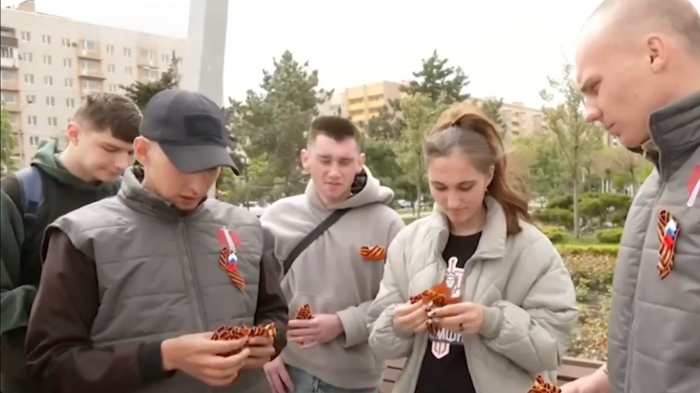Fear, deprivation, and threat of violence or conscription into the Russian army drive Ukrainian teens living in the occupied territories to leave their homes.
This reality is shared by many Ukrainian teens living in territories under Russian control. The NGO Almenda reports over 615,000 school-age children in these territories facing dire circumstances. Authorities mobilize boys into the Russian army, send teens to “military-patriotic camps” for “re-education,” and give children to Russian families for adoption. Human rights activists have documented cases of teenagers being captured, intimidated, tortured, and killed.
“There may not be a tomorrow,” says Vitalii, a 16-year-old from Kherson Oblast. His perspective was shaped in a pit filled with pork entrails, which Russian forces threw him during the occupation. Anna, 18, lived under occupation for a decade, learning “not to talk or ask unnecessary questions.” Now in Norway, 16-year-old Inna remains in “survival mode,” as she did under occupation. Evelin, exposed to Russian propaganda for ten years, chose Ukraine but is adjusting to never re-visiting her hometown.
Some teens have left for government-controlled areas or abroad; others await liberation. Those remaining cannot share their stories without risking their lives and safety. These accounts offer a glimpse into the harsh realities faced by Ukraine’s youth under Russian rule.
Evelin’s journey from occupied Donetsk to Kyiv
Evelin Biankpin Akassi, 18, was born and raised in Donetsk and was eight when Russian forces occupied the city. A year ago, she left for Kyiv and is now studying at Vernadsky Tauride National University, which relocated from Crimea in 2015.
“As an internally displaced person, I was looking for an internally displaced university,” she says, sharing her story to help other teens under occupation decide to leave. Although she has a Russian and French background (her father comes from the Ivory Coast), Evelin speaks fluent Ukrainian.
Her childhood memories under occupation include the disappearance of her favorite jelly candy and Ukrainian cartoons. “My mother was trying to protect me from the war,” she explains. Yet, she quickly realized life would not be the same.
Education-oriented, Evelin sought out Ukrainian history books and language materials in Donetsk. By 2016, she managed to find some Ukrainian classics like Taras Shevchenko’s Kobzar, poems, and stories by Ivan Franko and Lesia Ukrainka through friends. The school switched to Russian, though Ukrainian lessons persisted until 2020, taught by a Russian-speaking teacher.
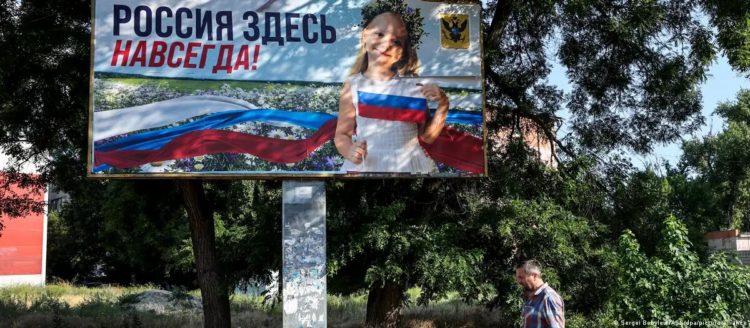
“In the 9th grade, a classmate said he wouldn’t need Ukrainian, started turning over desks, screaming loudly. Others joined in. The teacher had a nervous breakdown,” Evelin recalls. She also witnessed a boy from Kyiv Raion of Donetsk being beaten into intensive care due to propaganda-fueled hatred – all because he came from a district carrying the so-called “Nazi name” of Kyiv.
Discrepancies in Russian history textbooks led her to seek information online, revealing a different reality. Despite being offered a state-funded place at Moscow State University, she chose Ukraine. “I knew Moscow would be easier for me, but I refused because I really didn’t want to leave,” she states.
Working in a beauty salon, she saved money to move to Kyiv. Meanwhile, Donetsk was “cleared of locals,” with Russian officers and their families arriving.
“Prices went up a lot, and the locals began to live much worse. I got the feeling that we were strangers in our own land,” she says.
Her journey through Russia, Belarus, and Poland was solitary and exhausting. In Kyiv, she switched to Ukrainian as a matter of principle.
“It took me a while to get used to the freedom and the fact that I was safe,” she admits.
Missing her mother and Donetsk, Evelin acknowledges the pain of possibly never returning. Yet, she hopes her experience will inspire others to choose Ukraine over Russia. “Right now, it’s extremely important for me to surround myself with conscious people who are not afraid to work for change.”
Vitalii was held for ten days in Russian captivity
16-year-old Vitalii spent eight months under Russian occupation alongside his family in the village of Kyselivka, near Kherson. His ordeal worsened in September 2022 when he and his uncle were captured during a walk.
“On 10 September, we passed a burnt-out military vehicle. Four people in military uniforms stopped us, checking our phones, accusing us of planning to film military equipment and surrender positions,” Vitalii recounts.
They were taken to a “pit” near a gas station, filled with what appeared to be pig intestines. “They kept us there for two hours, threatening to shoot us or throw a grenade in there,” he says. Later, they were blindfolded, bagged, and separated.
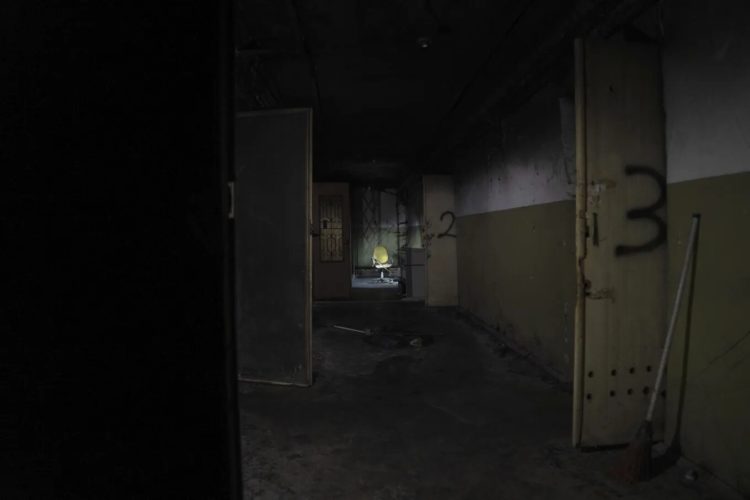
Vitalii, the youngest among 15 detainees in a tiled, drain-fitted cell, was not fed for four days, surviving on food from fellow prisoners. He was not beaten. His uncle and the others were. On day six, he was moved to another room with a man tied up for having a gun at home.
On 21 September, they were released near Kherson’s train station. “Later, I learned they were holding us in the Kherson Court of Appeal building,” Vitalii says. Upon returning to his village, he stayed indoors until Ukrainian forces liberated it in November.
Now, with relative calm restored in Kyselivka, Vitalii’s future remains uncertain. “What do I dream about? Actually, nothing! I don’t make any special plans. It depends on God,” he says, reflecting the profound impact of his terrifying experiences under Russian occupation.
Anna spent her childhood in occupied Donetsk
Anna (name changed), 18, recently moved from Donetsk to Lviv after living almost her entire life under occupation. She seeks anonymity, fearing for her relatives still in Donetsk, especially her brother, whom she worries might be mobilized into the Russian army.
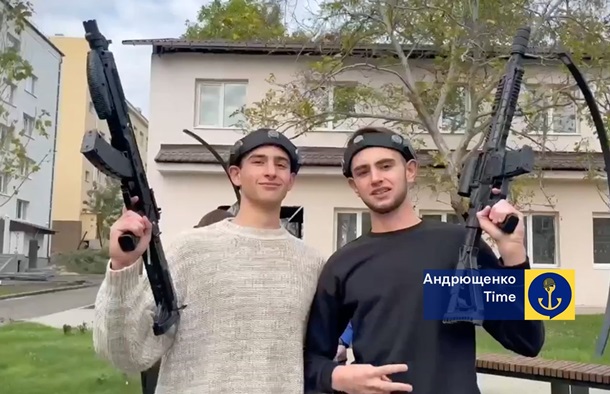
Anna’s childhood was punctuated by terror. In 2014-2015, constant shelling forced them into basements. A haunting memory is of her six-year-old friend repeating, “Mommy, mommy, mommy…” after a shelling. They found his home in ruins, with body parts among the debris. “That’s when I realized something terrible was happening, not somewhere else, but here, with us,” she says.
Her experiences underscore the human cost of the ongoing war. A neighbor mobilized into the Russian army and returned without a leg, questioning the Russian narrative: “They are lying to us; everything is not really like they say.” He later disappeared, probably taken away for his frank words.
Anna grew up in a tight-knit friendly community, which was torn apart as young men were forcibly taken into the Russian army. Many died, including a friend who was buried in a mass grave. “Of course, he’s not a hero for me, but he’s my friend,” she says, reflecting the complex emotions of losing friends to an invader and cause they did not support.
Despite the occupation, Anna tried to maintain normalcy. Donetsk has cinemas, though they show pirated and propaganda films. In the Taras Shevchenko cinema, a black cloth covers the poet’s statue, which Anna and her friends find ridiculous. They all knew who was concealed from the public eye and why. Anna relied on Telegram channels and YouTube for information, avoiding Russian TV’s “crude propaganda.”
When she left, her parents supported her, though her grandmother called her a traitor. Anna says that older people cannot change or adapt to something new. She estimates about 20% of people in Donetsk are pro-Russian, 20% pro-Ukrainian, and the rest apolitical.
Reflecting on her journey through Russia and Europe to get to Lviv, Anna notes, “When I crossed the border between Poland and Ukraine, the first thing I felt was hunger. That means I already felt safe. I’m so glad I left my hometown.”
Inna survived Russian occupation but now struggles to adapt in Norway
Inna (name changed), 16, lived for a year in occupied Enerhodar, near the Zaporizhzhia nuclear power plant. She describes life without friends, school, or future plans, illustrating the challenges teenagers face in war zones.
On 24 February 2022, Inna heard about the war’s start but initially focused on minor concerns like missed swim practice. Days later, she was queueing at 5 a.m. for bread, feeling her feet freeze in “the coldest winter of my life.”
Russian troops entered Enerhodar on 3 March 2022, with tens of thousands of residents, including Inna’s parents, staging a five-hour protest blockade before being dispersed. Her father, an employee of the Zaporizhzhia nuclear power plant (ZNPP), was convinced that the nuclear plant was Russia’s target.
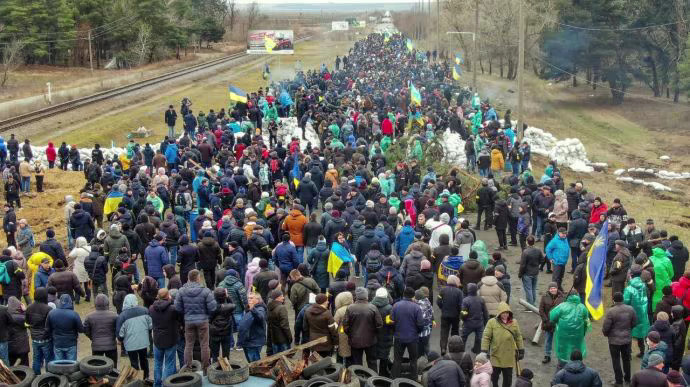
Living by the embankment, Inna witnessed Russian artillery firing at nearby Nikopol every night. She became antisocial, trying to adapt to abnormal norms. Despite seeing armed people and public arrests, she walked the streets, careful with her words, as “the walls can hear everything.”
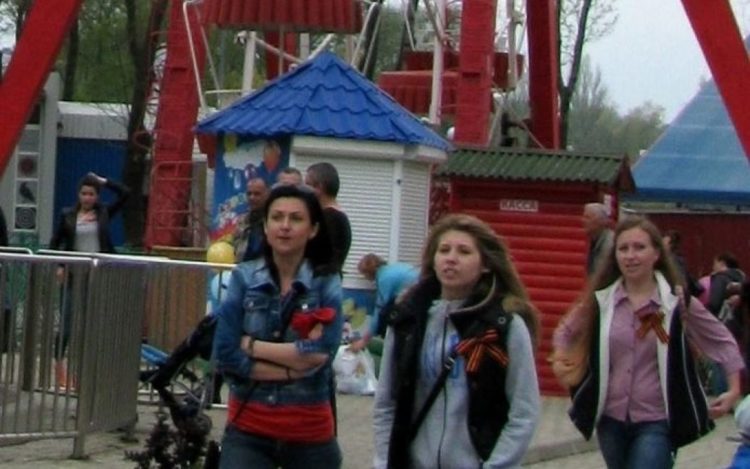
Her parents decided to leave in July 2023 when apartment searches began, and ZNPP employees refusing Rosatom contracts were immediately fired. They drove 8,000 kilometers through Russia, Georgia, and Türkiye, ultimately choosing Norway.
In Norway, Inna confronts new challenges. Realizing that just the availability of food, water, and power is not enough for her to lead her kind of normal life, to do what she really wants, she experiences hysterics and nervous breakdowns. As a migrant, she struggles with self-esteem and identity. At her swim club, she feels invisible, wanting to shout, “Hey! Look, I’m here too!”
When asked about her future, Inna responds, “Don’t ask…I don’t even know what I’ll do this evening.” She reflects that despite Norway’s 200-year peace, its people cannot truly understand her painful experiences.
“No matter how much we tell them about the war and the occupation, they won’t understand. But I don’t really want them to understand. I just want to be noticed!”
- How schoolchildren in Russian-occupied Ukraine are taught to hate their homeland
- Ukraine returns 24 children taken from Kherson Oblast by Russian troops
- How Russia deports orphanages and prisons from the occupied territories of Ukraine
- Russian occupiers remove Ukrainian from school curriculum in Zaporizhzhia Oblast
- Russia should pay for restoration of Ukraine, US Treasury Secretary says
- UN report accuses Russia of war crimes in Ukraine: Torture, sexual violence, and murder revealed
- Stolen childhood: Russian propaganda and militarization of Crimean youth
- Parades and propaganda: how Russia erases the Ukrainian identity of kids in occupied Crimea

